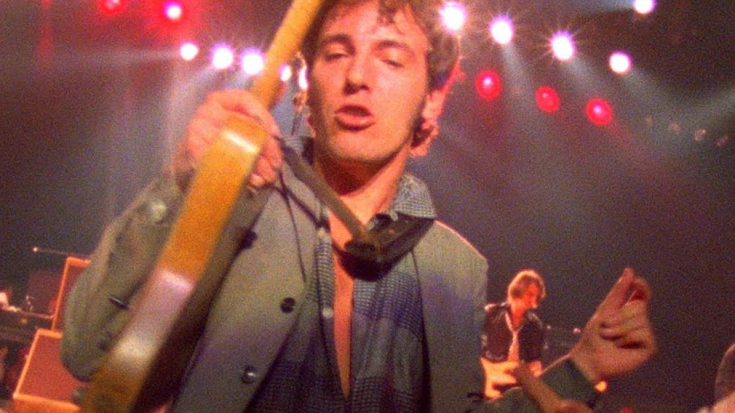Our Honest Review On Bruce Springsteen’s “Nebraska”

via Bruce Springsteen / Youtube
Bruce Springsteen, often referred to as The Boss, has a storied career in music, and one of his notable albums is “Nebraska.” In this honest review, we’ll dive into the simplicity and depth of this iconic album.
In his memoir, Springsteen pays homage to Bob Dylan, calling him the “father of my country.”
He acknowledges the impact of Dylan’s albums, “Highway 61 Revisited” and “Bringing It All Back Home,” for unveiling a truthful vision of his surroundings.
“Nebraska” deviates from Springsteen’s usual grandiose sound, opting for a stripped-down approach that exposes the darker side of America. Opening with a dissonant harmonica, the album sets a tone of despair. The line, “Me and her went for a ride sir / And ten innocent people died,” is delivered with a despondent equanimity that characterizes the entire album.
Across ten tracks and 40 minutes, Springsteen doesn’t shy away from portraying the casual brutality of America. The album weaves the tale of Charles Starkweather into the fabric of Americana music, creating a heartless drama devoid of unnecessary theatrics.
View this post on Instagram
Springsteen’s storytelling shines in “Nebraska.”
While hits like ‘Glory Days’ and ‘Born to Run’ bring literary elements to stadium rock, this album stands out for its uniqueness. It delves into the violent heart of America with an intent and vision that never wavers.
The sound of “Nebraska” is marked by distant guitar plucking, Springsteen’s prominent voice, and haunting harmonica. The clear intent adds to the album’s impact, offering no respite from the harsh reality it presents.
In a surprising move, Springsteen introduces a glimmer of hope in the final track, ‘Reason to Believe.’ However, instead of counterbalancing the bleakness, it ties into the overall narrative, encapsulating the modicum that allows misery to persist.
The short stories within the album, set against stark melodic backdrops, are intricate works etched in blood and viscera.
Themes of apathy, gallows humor, misplaced hopes, and remorseless murderers make “Nebraska” one of the most exacting albums in American history.
Flowing with serene simplicity, akin to the landscape witnessed by Starkweather, the album occasionally introduces Chuck Berry riffs. Yet, it remains consistently bleak, with upheaval and violence woven seamlessly into the monochrome inertia of long horizons.
“Nebraska” is a brutally honest piece of art, showcasing Springsteen’s unyielding commitment to truth in his vision. It stands as a testament to the simplicity and complexity that music can embody, making it a brilliant and haunting addition to Springsteen’s repertoire.











